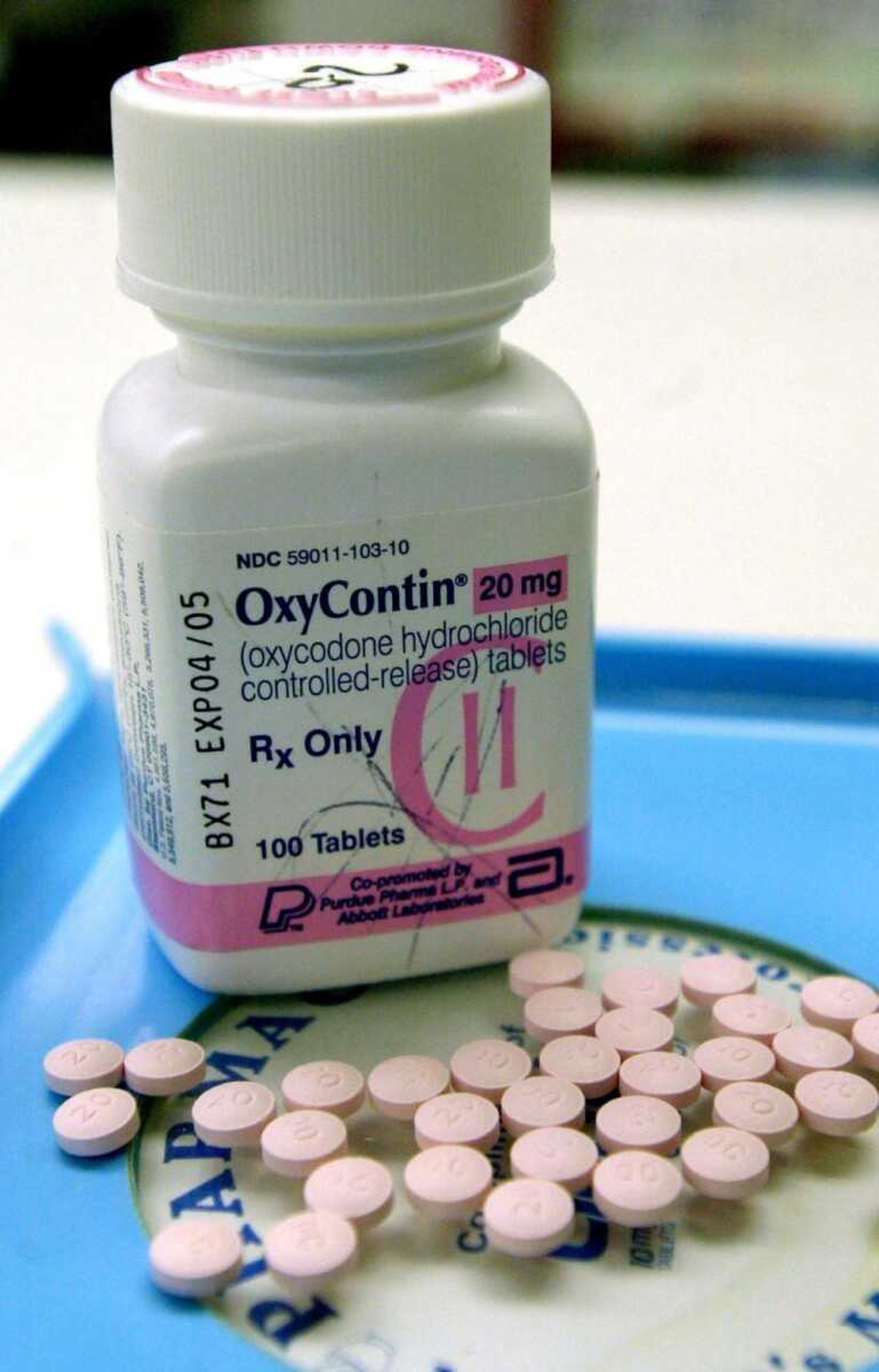Sales of three painkillers increase in Mo.
ST. LOUIS -- Sales of three major painkillers have been on the rise in Missouri in recent years, and while that brings the potential for more drug abuse, health officials largely credit better efforts at pain management for the increase. An analysis found that the percentage of people using five major painkillers increased 90 percent between 1997 and 2005 in the United States...
ST. LOUIS -- Sales of three major painkillers have been on the rise in Missouri in recent years, and while that brings the potential for more drug abuse, health officials largely credit better efforts at pain management for the increase.
An analysis found that the percentage of people using five major painkillers increased 90 percent between 1997 and 2005 in the United States.
Missouri saw some significantly higher increases.
Most notably, retail sales of oxycodone, the chemical used in OxyContin, increased more than 1,100 percent in Missouri from 1997 to 2005, the highest percentage increase in the nation. Sales grew from about 100,000 grams to 1.2 million grams during that time.
While Missouri sales of codeine and meperidine were down roughly 30 percent in that time, others were on the rise, like morphine, up 140 percent and hydrocodone -- sold under brand names including Vicodin -- up nearly 250 percent for those years.
But increased sales of painkillers aren't necessarily problematic, health officials said.
"The percentage I see abusing these things is tiny, tiny, tiny," said Becky Culbertson, president of the Jefferson City-based Missouri Pharmacy Association. Culbertson also works as the pharmacist-in-charge at the 50 Plus Pharmacy in Independence.
She said physicians trying to help patients with pain often combine the narcotic painkillers with other medications, like antidepressants, sleeping aids or medications that can block the brain's perception of pain. As a pharmacist, that's often a sign that the drugs are not being abused, she said, and that a person is getting good pain treatment.
Doctors who treat pain say there's much more to it than just prescribing drugs. They look at a person's overall health, and may combine prescriptions with over-the-counter medication, physical therapy, surgery or psychological ways to deal with pain, said Dr. Anthony Guarino, who directs a pain management center for Washington University.
Richard Strait does drug and alcohol counseling for the Southeast Missouri Community Treatment Center, which treats people from Park Hills to Rolla to the Bootheel.
Despite the high retail oxycodone sales in Missouri, he couldn't recall ever helping someone with an OxyContin addiction, although he has worked with those addicted to Percocet, which contains oxycodone.
Missouri legislators have unsuccessfully proposed a prescription monitoring program that could tell officials if someone is "doctor shopping," or going to more than one doctor to try to get pain medication.
Anyone who dispenses controlled medication would report to a central database, said Susan McCann, administrator for Missouri's Bureau of Narcotics and Dangerous Drugs.
The bureau already registers those who have legitimate business involving controlled substances.
"If you increase the number of prescriptions, you're going to have an increased amount on the streets," McCann said.
Connect with the Southeast Missourian Newsroom:
For corrections to this story or other insights for the editor, click here. To submit a letter to the editor, click here. To learn about the Southeast Missourian’s AI Policy, click here.








